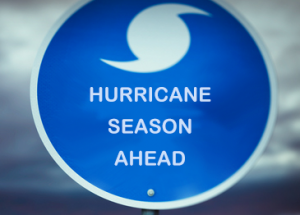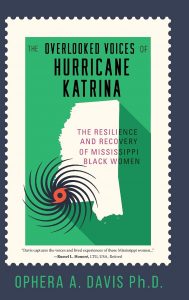Hurricanes start as water disturbances off the West African coastline then enter the Atlantic Ocean warm waters. Some of these systems reach the United States as hurricanes. This series will provide information on what you need to know to keep you and your family safe. The National Hurricane Center (NHC) has predicted another overactive hurricane season and that means we can expect to see many storms in 2021. We are 10 days from the official start of Hurricane Season on June 1. As this year’s hurricane season begins the NHC has given us some key information to keep in mind. Last year, was the most active season since Hurricane Katrina hit in 2005. This year, in addition to the regular list of storms, the NHC has created a supplemental list of 18 names for possible hurricanes. The good news is, like the official list, the supplemental hurricane index contains male, female, and gender-neutral monikers as well as ethnic storm names.
My book chronicles the experiences and resilience of a group of Hurricane Katrina Mississippi Black women survivors. These Mississippi women have words of advice about getting ready for hurricane season. One woman, Jeanette commented, “We were watching CNN and the Weather Channel during the preceding week before Katrina hit we started looking at our options”. Helen said, “I had been watching the news every day…; …we realized that the hurricane had changed its course”. Betty added, “I have always been a storm watcher and I had been following this storm pretty closely as it moved”. These Hurricane Katrina survivors suggestions to be aware of what is happening in your area and the information that the NHC’s provides serves as a clarion call for everyone to get ready before the newscasters say a hurricane is approaching the coastline where you or your relatives live. The next Blog post will suggest things you need to prepare right now to get ready.




Great information